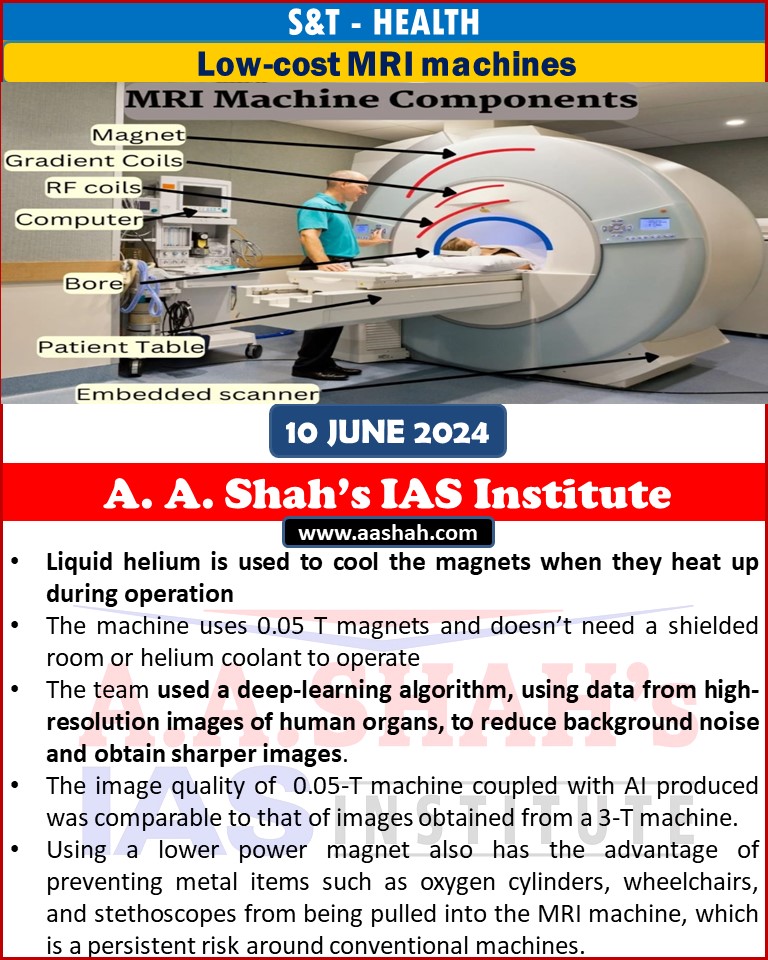
•Scientists at University of Hong Kong have designed a magnetic resonance imaging (MRI) scanner that costs a fraction of existing ones, helping improve access to this widely used diagnostic tool.
•It is portable, relatively light-weight, doesn’t need cumbersome shielding, and can be plugged into standard wall sockets.
•A MRI helps visualise minute details in the human body, with which doctors can diagnose disorders and select treatments for the brain, heart, various cancers, and orthopaedic conditions.
•MRI uses strong magnetic field, measured in units called tesla (T), and radio waves to generate images of internal organs.
• The strength of these magnetic fields in clinical MRI setups range between 1.5 T and 3 T — or 4-8-times stronger than the typical magnetic field in a sunspot on the Sun.

•Liquid helium is used to cool the magnets when they heat up during operation
•The machine uses 0.05 T magnets and doesn’t need a shielded room or helium coolant to operate
•The team used a deep-learning algorithm, using data from high-resolution images of human organs, to reduce background noise and obtain sharper images.
•The image quality of 0.05-T machine coupled with AI produced was comparable to that of images obtained from a 3-T machine.
•Using a lower power magnet also has the advantage of preventing metal items such as oxygen cylinders, wheelchairs, and stethoscopes from being pulled into the MRI machine, which is a persistent risk around conventional machines.